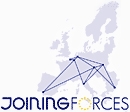
City-regions gain in importance with the emergence of the economic development agenda. The city region, i.e. the "economic city", is much larger and thus more influential than the "administrative city". City-regions, especially around large cities, are key to driving national economies:
- They have the greatest density of economic assets: higher education institutions, R&D facilities, companies’ headquarters and other profit centres.
- They are national and international gateways and meeting places, possessing airports, sea or river ports, rail links, conference, exhibition and trade centres.
- They tend to have the youngest, most dynamic - and diverse - population.
- They have higher populations, offering much bigger opportunities (for entrepreneurs, researchers, stake holders, job seekers) as co-operating urban areas than the cities alone.
To make the most of these assets, an effective co-operation process is needed with the double aim of:
- Reducing sterile competitions between institutions; avoiding the useless duplication of public facilities, and therefore making the most of public resources is one of the competitive challenges to be dealt with at the city-region level.
- Increasing the synergy between players in fields such as higher education, research, innovation and more generally economic development (for example by developing competitive clusters); this is another condition for competitiveness that can best be achieved at city region level.
At the same time metropolitan areas also provide a better level for tackling some of the major challenges urban Europe is to face:
- More successful urban regeneration policies can be developed at this level as city-regions gather at the same time the most affluent people and successful areas and the most vulnerable people and deprived neighbourhoods.
- The issues of urban mobility and urban sprawl (travel to work, travel to shops, etc), which plays quite an important role in the carbon emission can only be tackled at that level.
- Other crucial issues, such as waste management, water supply, etc. can be dealt with in a more effective way at this level.
For all these reasons there is a common aim to achieve real co-operation between the cities and their surrounding areas, not only in order to improve local situations (to contribute to provide better services, opportunities and quality of life for the urban population), but also because this is a key factor towards a more competitive and more sustainable European development.
Based on existing local experiences, the work of "Joining forces" aims at helping to define the relevant scales for such co-operations to be likely to achieve greater territorial competitiveness and sustainability, helping thus to develop successful metropolitan cooperation in Europe.
The only topic on which the group is working is "governance at city-region level".
A clear trend towards a revival of governance initiatives at city-region level can be seen in recent times in many European countries. This trend is mainly due to the worldwide increased competition between the different cities and the creation of urban "megalopolis". However political reasons for creating such arrangements can actually differ from one city to another, as it can be understood when reading the baseline study.
In order to effectively exchange experiences and thus be able to draw relevant conclusions, we had to work on the basis of practical examples (case studies) and therefore to consider the unique theme through different aspects.
After in in-depth common review and discussion we decided during our meeting in Lille (July 2008) for the phase 1 that the most important and shared aspects of the 8 different partners were:
- Strategy making and Spatial Planning
- Mobility management and Transport
- Environmental issues: air and noise pollution, waste disposal, water supply, etc.
- Knowledge economy (Creativity, Research & Education)
- Attractiveness & competitiveness (including Promotion / Marketing)
- Social inclusion, participation, empowerment at metropolitan level
- New Governance mechanisms (public/public & public/private arrangements)
The objective is to observe the tools / mechanisms of governance through these different concrete subjects.
What is your challenge regarding the problematic?
Lille and its region are very specific in the French context: three main features set it clearly apart from the other French major cities.
- Its cross-border situation with a true urban continuity between France and Belgium in many places.
- Its actual polycentric structure with an urban fabric developed from several historic cores
- Its close proximity with other big urban areas, the closest being the former coal mining area with which human and economic exchanges are so intense that it is creating a sole Functional Urban Area.
With more than 3.5 million inhabitants this urban region it is by far the largest in France (Paris excluded).
This situation is providing the area with many opportunities for a greater competitiveness and better action towards greater cohesion and sustainability. Nevertheless their actual valorisation has been widely limited so far by the fragmentation of local powers and sterile competitions between territories. For 15 years at least, cooperation processes have started at different levels but there is till a lot to do to achieve a truly cooperative development.
What is the expected learning from the working group?
The specific challenge we wish to address in this working group as a partner is to continue and develop the process of cooperation that Lille Metropole and 22 other partners have engaged for almost 3 years in the Lille Metropolitan area project with the Agence as the overall coordinator by: learning from the other partners experience and comments, identifying tools and methods, giving to our local partners the opportunity to discover examples of cooperation in Europe, etc.
